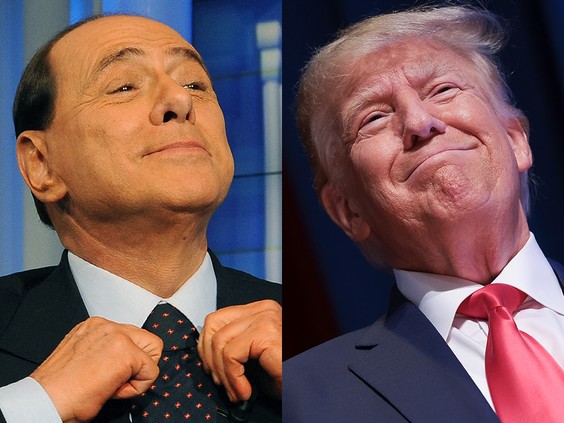The Preelection Echo of Fighting*
(Russia) on 16 June 2023
by Anton Grishanov (link to original)
Anton Grishanov on the relationship between the results of the Ukrainian counteroffensive and the U.S. presidential election.
The start of Ukraine's counteroffensive coincided with the beginning of the active phase of the U.S. 2024 presidential election campaign. Undoubtedly, the Ukrainian conflict will form one of the topics of the accompanying presidential debates. Of course, Ukrainian events worry American citizens much less than immigration, gun control or abortion rights. But the Western media's attention to this crisis over the past year and a half has been so intense that even the most ardent of isolationists cannot avoid discussing this issue as the election approaches.
Not long ago, political observers in the U.S. predicted that the Ukrainian issue would be an ace up Joe Biden's sleeve. According to those predictions, in the eyes of the public, the Biden administration's handling of the Ukrainian conflict would eclipse the fiasco of the Afghanistan withdrawal and the economic downturn. However, this would only have been possible if Kyiv had had profound successes "on the ground" similar to last year's breakthrough in the fall, and the prospects for such a scenario seem dim, to say the least. Against this backdrop, the negotiations after the "successful Ukrainian counteroffensive," already teased in advance by Washington, might not live up to the West's great expectations, undermining the incumbent U.S. president's already-weak position even further.
Meanwhile, not only Republicans but many Democrats as well are waiting for another misfire by Biden or even for him to drop out of the presidential race.
The leftists in the Democratic Party want revenge for Bernie Sanders' defeats in the 2016 and 2020 primaries as well as payback for the Biden administration's implicit rejection of the "leftist turn" and will try to use any mistake Biden makes to its advantage. This brings to mind how, last October, progressives in Congress called on Biden to pursue "every diplomatic avenue" to end the Ukrainian conflict, only backtracking after pushback by the leading Democratic lawmakers. However, with the campaign for a negotiated settlement gaining popularity in non-Western countries, such rhetoric may be in demand among center-left voters and may no longer meet the same resistance from the elites.
In the Republican camp, Donald Trump, hated by leftist Democrats, has paradoxically become the leading adherent of an essentially similar position. Even though his statements lack specifics, his insistent calls for a cease-fire, judging by the former president's rising approval rating, do not alienate right-leaning voters. Apparently, Trump not only hopes that frustration over Kyiv's failures will add to the White House's problems but is also burning with the desire to put the dithering Ron DeSantis and pro-Ukrainian rivals such as former Vice President Mike Pence in their place in the primaries.
It seems that Biden's inner circle, too, is beginning to realize that previous optimistic forecasts for Kyiv's counteroffensive have caused the Western coalition to fall into the trap of unrealistic expectations.
Evidently, the U.S. is attempting to correct this approach, in particular through regular leaks in the pro-Democratic media, hinting at the Ukrainian military's overly adventurous position, which allegedly ignores a cautious Washington's advice.
It's also noteworthy that similar discussions are now happening among experts, even though, until recently, few would have risked questioning the validity of the previous approach. For example, the article by Samual Charap of the RAND Corporation in Foreign Affairs with the eloquent title "An Unwinnable War" addressed the importance of U.S. diplomatic efforts toward Russia and provoked a wide-ranging response. At almost the same time, another prominent political scientist, Hal Brands, who serves on the State Department advisory council, published a kind of manifesto entitled "The Battle for Eurasia" in Foreign Affairs. In this article, Brands predicts the long-term rivalry of the U.S. with the leading powers of the region, including Russia.
Therefore, we're witnessing an ever-increasing number of signs that the Washington establishment is preparing to abandon yesterday's radicalism, underpinned by the unrealistic hope of the "strategic defeat of Russia." The approaching presidential election will give new impetus to this process. However, Russia needs to understand that the strengthening position of pragmatists and even the possible success of Trump, who is regaining his former popularity, will not change the nature of long-term relations between Russia and the U.S.
Across the U.S. political spectrum, the proponents of pursuing the diplomatic path are united not by a desire to move away from confrontation with Moscow but by irritation with the ineffectiveness and short-sightedness of the current administration.
Indeed, the U.S. has reconfigured its political system to facilitate a long-term confrontation with Russia, and neither the start of negotiations on Ukraine nor any election result will cancel out this new normal in our bilateral relations.
Anton Grishanov is the Chief Researcher at the Institute of Contemporary International Studies, Diplomatic Academy of the Ministry of Foreign Affairs of the Russian Federation.

